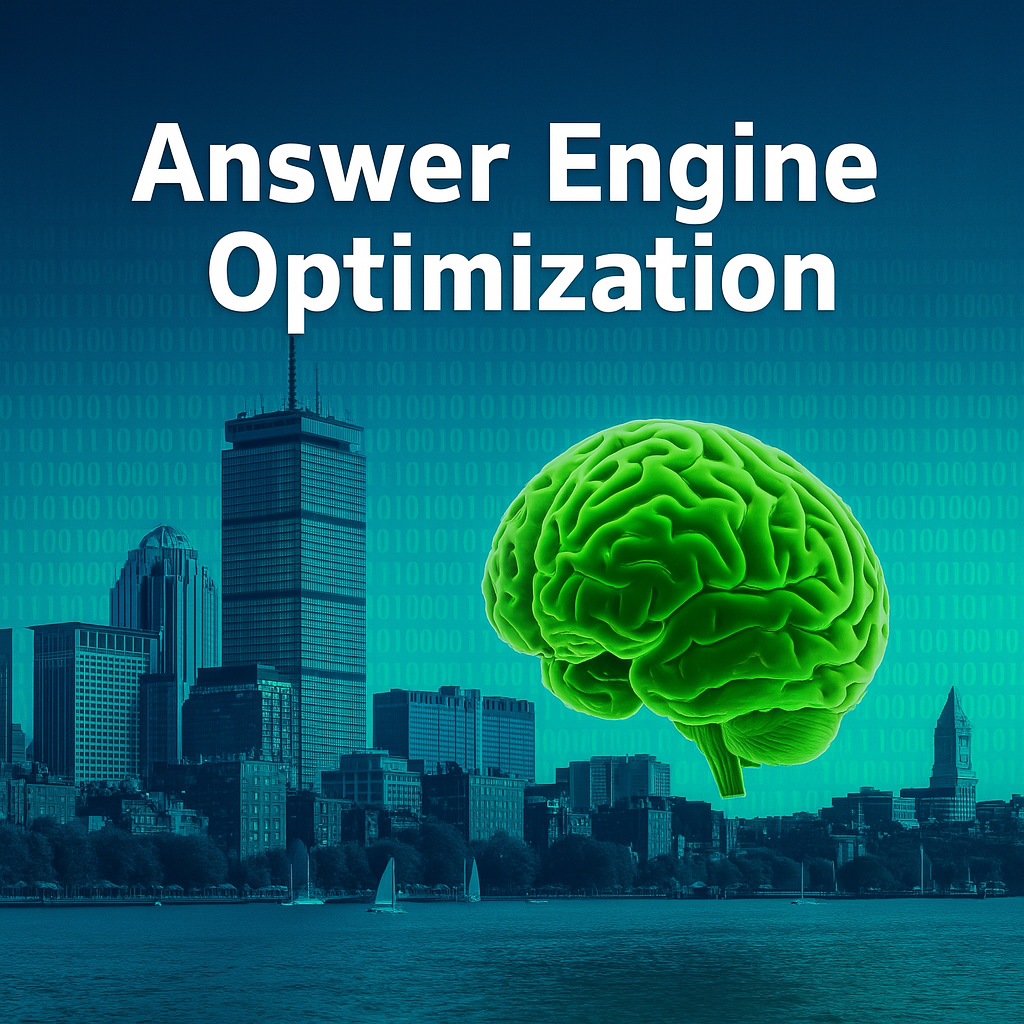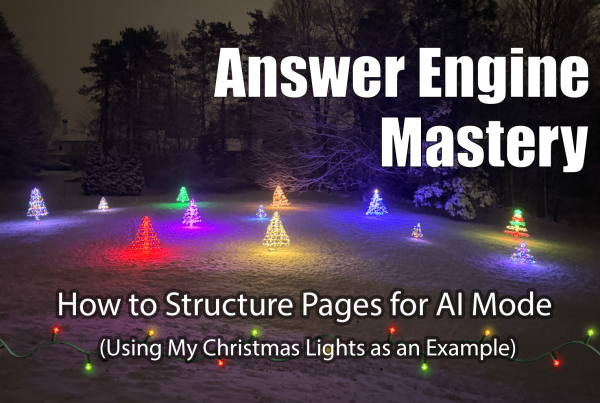If you want your website to be cited by AI models like ChatGPT, Gemini, Claude, and Perplexity, you need to focus on crafting high-quality content that resonates with users. It’s not just about what you say, but how you structure and present that information. By incorporating elements like FAQs and case studies, you can enhance your site’s relevance and authority. But there’s more to it than just content. Understanding the technical aspects of SEO and how these AI models select content will be vital. What strategies can you implement to ensure your site stands out?
Introduction to AI SEO and LLM Seeding
As you navigate the digital landscape, you’ll notice a shift from traditional SEO to AI-driven strategies.
This evolution emphasizes the importance of LLM Seeding, which focuses on getting your content cited by AI tools rather than just generating clicks.
Understanding these changes is essential for maintaining your brand’s visibility and relevance in today’s market.
The Evolution from Traditional SEO to AI SEO
In today’s digital landscape, the shift from traditional SEO to AI SEO is reshaping how brands connect with their audiences. With the rise of AI-powered search interfaces, brand visibility relies less on ranking and more on being cited by AI models.
This evolution, often termed “SEO for AI models,” reflects changing information consumption patterns where users turn to LLMs like ChatGPT for answers.
As organic clicks decline despite high impressions, your focus should shift to creating content that AI tools can easily reference. This means emphasizing academic integrity and producing quality, structured information that aligns with user queries.
By understanding how LLMs prioritize citations, you can enhance your brand’s credibility and authority in the digital space.
Utilizing LLM seeding strategies allows you to position your content as a go-to resource, increasing your chances of being cited. This not only boosts brand visibility but also helps establish your brand as an industry leader.
Embracing these changes is essential for maintaining relevance and fostering trust in an AI-driven information landscape.
Appear in Answer Engine Results!!
* Required fields
Understanding How AI Models Select and Cite Content
When it comes to AI citation algorithms, they operate quite differently from traditional search rankings.
Instead of focusing solely on keywords, these models prioritize content relevance, authority, and clarity to determine what to cite.
Understanding these distinctions can help you tailor your content for better visibility in AI-generated responses.

AI Citation Algorithms vs Traditional Search Rankings
AI citation algorithms prioritize content in a fundamentally different way than traditional search rankings. While traditional search engines like Google often rely heavily on keyword density and backlinks, AI models focus on content quality, relevance, and clarity. This means that your content must directly address user queries and provide clear, actionable answers to increase its chances of being cited.
Authority signals also play an essential role; AI systems favor credible sources, so including expert opinions and citations from reputable domains can enhance your content’s trustworthiness. Additionally, crawl accessibility is vital for AI models like ChatGPT and Claude. Ensuring that your site allows bots to index your pages will improve your content’s visibility in AI-generated outputs.
Interestingly, about 90% of ChatGPT citations come from sources outside the top 20 search results, highlighting the importance of depth and structure in your content.
Content Optimization Strategies for AI Visibility
When optimizing your content for AI visibility, focus on formats that are more likely to get cited.
Structured lists, FAQs, and comparison tables not only enhance readability but also align with what AI models prioritize.
Content Formats That Get Cited Most
Effective content formats can considerably enhance your website’s chances of being cited by AI platforms. To learn how to get cited in ChatGPT, focus on structured “Best Of” lists with semantic headers. These not only organize information clearly but also make it easier for AI to parse your content.
First-person reviews that detail personal experiences resonate well, as they add authenticity to your narrative. Comparison tables are another powerful format, highlighting pros and cons in a visually digestible way.
Additionally, FAQ-style content provides direct answers to specific questions, which ChatGPT values highly when generating responses. Use conversational language and natural phrasing to engage readers, making your content feel approachable.
When citing ChatGPT, it’s vital to include examples, data, and case studies to back up your claims. Avoid vague generalizations or SEO filler; instead, focus on delivering clear, actionable insights.
Technical SEO Requirements for AI Crawlers
To make sure AI crawlers can effectively access your content, you’ll need to focus on crawler configuration and technical optimization.
This involves setting up your robots.txt file correctly and ensuring your site loads quickly on all devices.
Crawler Configuration and Technical Optimization
Configuring your website for AI crawlers like GPTBot and OAI-SearchBot is fundamental for enhancing visibility in AI-generated content.
Start with proper crawler configuration in your robots.txt file to ensure these bots can access your site. Next, create an XML sitemap to help them navigate your pages efficiently.
Schema markup is another important element. By implementing structured data using schema.org, you provide context that AI crawlers can easily interpret, improving your chances of being cited.
Don’t forget about mobile responsiveness; with a growing number of users accessing information on mobile devices, making sure your site looks great on all screens is essential.
Platform Distribution Strategy for Maximum AI Exposure
To maximize your AI exposure, you need to focus on high-authority publishing and community platforms.
These channels not only enhance your brand’s credibility but also increase the chances of being cited by AI models.

High-Authority Publishing and Community Platforms
How can you leverage high-authority publishing and community platforms to maximize your brand’s exposure in AI-generated content?
Start by focusing on high-authority publishing sites like Medium and LinkedIn. These platforms not only boost your credibility but also increase the chances of your content being cited by AI tools.
Utilize guest posting opportunities on industry-specific blogs to reach a wider audience and enhance your authority.
Next, engage in community platforms like Quora and GitHub. Participate in discussions and answer questions related to your niche. This community engagement increases visibility and positions you as an expert, making it more likely for your content to be referenced by AI.
Don’t forget about using social media effectively. Share your content on platforms like YouTube, X, and Pinterest to drive traffic and encourage shares.
Your content strategies should include optimizing posts for engagement and clarity, ensuring that they resonate with your audience.
Building Brand Authority and Trust Signals
To build your brand authority, you need to focus on E-E-A-T: Expertise, Authoritativeness, Trustworthiness.
By showcasing your knowledge and credentials, you’ll enhance your credibility in the eyes of both users and AI models.
Consistently delivering high-quality, reliable content will help you establish those essential trust signals.
Creating Authority Through E-E-A-T Optimization
Establishing authority through E-E-A-T (Experience, Expertise, Authority, and Trust) optimization is essential for building brand credibility in today’s digital landscape.
To enhance your brand’s authority, focus on creating high-quality content that demonstrates your expertise and experience in your industry. This content should provide valuable insights, answer common questions, and address user intent directly.
Citations from reputable sources and industry experts amplify your credibility. When you reference authoritative domains, you’re signaling trust to both users and AI platforms.
Additionally, optimizing your author credentials and bios can strengthen your authority further, making it clear who the experts behind the content are.
Don’t overlook trust signals, such as customer testimonials, case studies, and frequent mentions on forums. These elements not only enhance your content but also contribute to your overall brand reputation.
Semantic Optimization and Query Intent Matching
To effectively boost your website’s citations, you need to grasp how users engage in conversational search.
Understanding the natural phrasing they use and covering relevant topics will help align your content with their intent.

Understanding Conversational Search and Topic Coverage
Understanding conversational search and topic coverage is essential for optimizing your content to meet user intent effectively. As AI queries become more sophisticated, focusing on natural language processing will enhance how your content interacts with these systems.
When you use a conversational tone and structure your content in a question-answer format, you’ll align better with how users phrase their inquiries.
To boost your topic coverage, aim for thorough strategies that address related questions and incorporate synonyms. This not only enriches your content depth but also signals relevance to AI models.
By integrating a variety of related subtopics, you improve your chances of being seen as an authoritative source.
Moreover, consider user intent in every piece of content you create. By understanding what users are truly searching for, you can tailor your content to provide valuable answers.
This intentional approach not only enhances user satisfaction but also increases the likelihood of citation by AI tools like ChatGPT and Claude.
In a world where content clarity and relevance matter, mastering conversational search will set you apart.
Monitoring and Measuring AI Citation Success
To effectively monitor and measure your AI citation success, you’ll need to track your visibility across various AI platforms.
Use specific tools to analyze performance metrics and identify how often your brand appears in AI-generated responses.
AI Visibility Tracking and Performance Measurement
As AI continues to shape how consumers access information, tracking your brand’s visibility and performance on these platforms becomes vital. Implementing AI visibility tracking allows you to monitor how often your brand appears in AI-generated content.
Start by conducting brand mention analysis to gauge how frequently your brand is cited across different AI platforms. This helps you understand your citation frequency and the sentiment surrounding those mentions.
Incorporate competitor citation monitoring to see how your rivals are performing. By analyzing their visibility, you can identify gaps in your strategy and improve your content accordingly.
Regularly evaluating content freshness is essential; outdated information can lead to decreased visibility. Confirm your content remains relevant and updated to maintain a competitive edge.
Utilizing GEO tools can further enhance your tracking efforts, allowing you to analyze branded search traffic growth. Evaluating these metrics will give you insights into your brand’s overall performance and impact in the AI landscape.
Future-Proofing Your AI SEO Strategy
To future-proof your AI SEO strategy, you need to adapt to the latest trends in AI search.
Keeping an eye on emerging technologies and shifts in user behavior will help you stay ahead of the curve.
Adapting to Emerging AI Search Trends
Embracing emerging AI search trends is crucial for future-proofing your SEO strategy. AI search traffic growth projections indicate a shift in how users interact with digital content, so you need to adapt quickly.
Stay ahead by understanding industry-specific AI application trends; these insights can help you tailor your content to meet evolving user needs.
Staying current with AI model updates ensures your content remains relevant and visible in AI-generated results. Regularly revitalizing your content through effective maintenance strategies keeps it aligned with the latest trends and user preferences.
This proactive approach not only enhances your site’s credibility but also boosts its chances of being cited by AI platforms.
Implementing continuous optimization best practices is key. This means not just focusing on keywords but also addressing user intent and providing clear, actionable answers.
By actively monitoring these trends and adjusting your strategy, you’ll build a resilient online presence that stands out in an increasingly competitive landscape.
Ultimately, adapting to these emerging AI search trends will position your brand for success in the future.
CALL US: 978-338-6500
Start appearing in Answer Engine Searches!
GreenBanana Is YOUR GUIDE to Ranking in Chat AI Searches!
Frequently Asked Questions
- How Do I Improve My Website's Trustworthiness for AI Citations?
- What Specific Metrics Indicate Successful AI Citation Growth?
- Can Social Media Presence Impact AI Citation Rates?
- How Often Should I Update Content for AI Visibility?
- Are There Any Tools to Track AI Citation Frequency?
- How Do AI Platforms Decide Which Websites to Cite?
- Can I Submit My Website Directly to These AI Models for Inclusion?
- Does Having Good SEO Help My Website Get Cited by AI?
You can improve your website’s trustworthiness by citing credible sources, showcasing expertise, maintaining high-quality content, and optimizing your site for clarity and technical performance. Regular updates and engaging with users also boost credibility and visibility.
To gauge AI citation growth, track branded search traffic, analyze AI mentions, monitor engagement metrics beyond clicks, assess citation frequency in AI responses, and evaluate increased brand awareness through user queries and interactions.
You should update your content regularly, ideally every few months. This keeps it fresh and relevant, improving visibility in AI platforms. Consistent updates signal authority and engagement, helping you maintain a competitive edge.
Yes, you can track AI citation frequency using tools like SEMrush, Ahrefs, or Google Alerts. These platforms help you monitor mentions and assess your brand’s visibility across various AI-generated content and search results.
AI platforms typically cite sources that are authoritative, original, relevant, and publicly accessible. This includes reputable news outlets, government or educational domains, and high-quality niche content. Algorithms often prioritize websites with clear authorship, consistent updates, strong SEO signals, and high trustworthiness.
No, there is currently no official submission portal to “get listed” or directly submit a website for inclusion in AI model training or citations. However, making your content highly crawlable and valuable can increase the chances of being indexed by search engines and retrieved by AI systems that rely on those indexes.
Yes, strong SEO practices such as structured content, optimized metadata, mobile responsiveness, and authoritative backlinks can make your site more discoverable by the web crawlers that AI platforms rely on. A well-optimized site is more likely to be considered a trustworthy source.
Conclusion
Knowing how to get cited in ChatGPT gives your brand authority in conversational AI. Our ChatGPT SEO services help make this possible. Success requires strong schema markup for ChatGPT citations and ongoing optimization. Dive deeper with our AI SEO and ChatGPT strategies.
Getting your website cited by AI models like ChatGPT, Gemini, Claude, and Perplexity requires a strategic approach. By focusing on high-quality content, optimizing for technical SEO, and building authority, you can enhance your visibility. Don’t forget to monitor your efforts and adapt to changes in AI algorithms to stay ahead. With these steps, you’ll increase your chances of being recognized and cited by leading AI platforms, ultimately driving more traffic to your site.
TL;DR: If your goal is ChatGPT visibility, start with ChatGPT SEO services, then use NLP and entity SEO and structured data for AI ranking. For comparisons, see ranking in Google Gemini and Claude SEO strategies.
Like what you see?
Let GreenBananaSEO help you with your AdWords and overall digital advertising needs; don’t rely on other white label AdWords management companies preaching impressions and clicks when conversions are what matter. Give us a call at (978) 338-6500 or email us at sales@greenbananaseo.com to get your digital advertising started today.
About GreenBananaSEO
GreenBananaSEO is a full service agency providing search engine optimization (SEO), online advertising, website development, and everything in between. GreenBananaSEO finds the right digital advertising recipe for each client, rather than forcing clients into canned solutions like another agency might do. With every client, GreenBananaSEO focuses on conversions, which are meaningful actions that drive your business. Conversions can be online inquiries, leads coming through your door, or ecommerce sales. GreenBananaSEO is passionate about connecting the right people to your business every day. With us, the future is ripe with possibilities.









